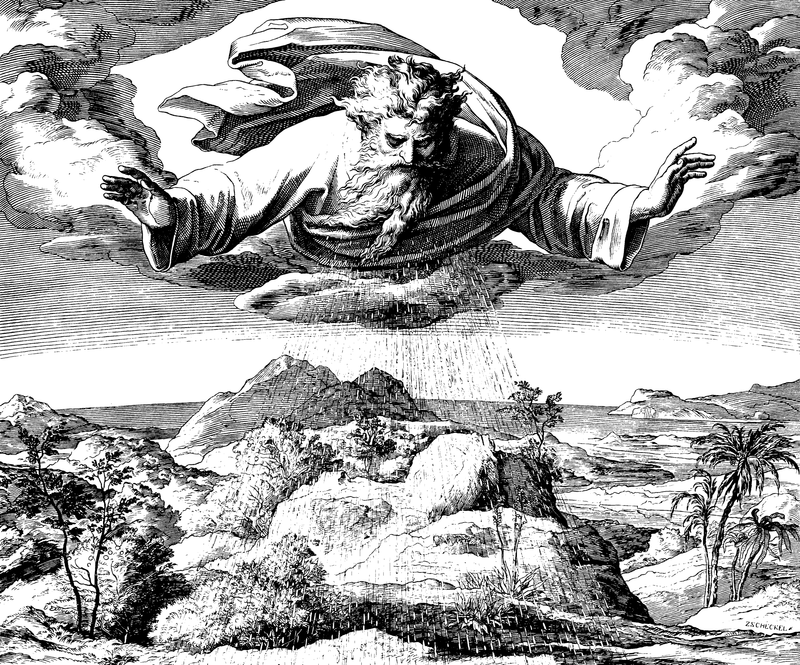
The Bible tells us about the condition of the land prior to the creation of man in the following verse:
“When no bush of the field was yet in the land and no small plant of the field had yet sprung up–for the LORD God had not caused it to rain on the land, and there was no man to work the ground, and a mist was going up from the land and was watering the whole face of the ground” (Genesis 2:5-6)
According to this biblical description, the land was irrigated first by some kind of a ‘mist.’ The word ‘mist’ appears in the original Hebrew as ‘Ed’ {אד} – a very rare Hebrew word which can only be found in the Hebrew Bible ONCE more, in the Book of Job:
“For he draws up the drops of water; they distill his MIST in rain.” (Job 36:27)
As can be seen, this Hebrew word is strongly connected to the state of water and in the case of Genesis, it suggests the land was irrigated by an underground water-source. And that is the reason for the more common Hebrew meaning of this word: ‘steam’.
Interestingly, in Modern Hebrew, there are TWO words for ‘steam’: one is closer to the biblical meaning (the state of the water) while the second one is called ‘Kitor’ {קיטור} in Hebrew and derives from a biblical root as well ‘K-T-R’ {ק-ט-ר} which means ‘smoke.’
It can be found in the Hebrew term ‘Ketoret’ {קטורת} which is the original Hebrew name of the incense that was used in the Tabernacle and the Temple in Jerusalem.
Many years later, when the Hebrew language was revived, there was a need to find original Hebrew words to describe the technology and life style of the 18-19th centuries. So using the old Biblical Hebrew root for ‘smoke’ (‘K-T-R) we received the Hebrew words ‘Katar’ {קטר} (locomotive of the train – because of the smoke it used to make) and ‘Mikteret’ {מקטרת} (a smoking pipe).
